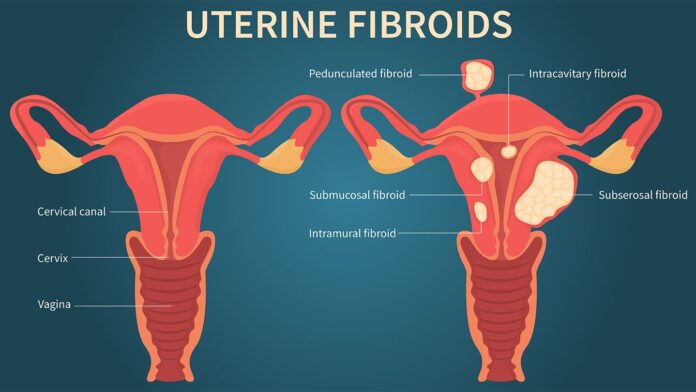Most women under 50, those on birth control pills, and with early periods are at risk
By Jeph Ajobaju, Chief Copy Editor
More than 70 per cent of women under 50 years of age are at risk of fibroid, including those using birth control pills and those who experience early menstrual periods, says fertility expert Dr Abayomi Ajayi.
But Ajayi, Nordica Fertility Centre Managing Director and Chief Executive Officer, counselled women not to panic over the disease because there are other treatments options for it apart from open surgery.
He spoke in Abuja during a virtual session on “Hangout on Infertility and Fibroids”.
“There are some drugs that can be used to treat fibroid … you cannot use drugs if you still want to have a baby because the drugs will not allow you to get pregnant.
“But they can be used for people who do not want to continue having children,” he said.
_________________________________________________________________
Related articles:
Buhari preaches control as Nigeria’s population skyrockets
Egg donation may cause infertility, experts warn
Lagos has lowest fertility rate, highest GDP; Katsina in reverse
__________________________________________________________________
Treatment options
Ajayi explained that High-Intensity Focused Ultrasound (HIFU) treatment has been adjudged the safest and most effective way to remove fibroid with minimal risk.
He said every treatment of fibroid does not demand open surgery which is mostly bloody and sometimes result in complications, per Vanguard.
He described fibroids as benign masses or growth in or on the uterus, saying although “they are so common, it is not every fibroid that needs to be treated.”
Ajayi added: “The fact that you find out that you have fibroids, is not the end of the world. Even if you need treatment, in 2022, there are so many treatment options that are available that do not involve surgery.
“People who see their menstrual periods earlier in life are also more predisposed to fibroid. People who are using birth control pills are also at risk of having fibroid.”
He stressed that every fibroid does not require treatment.
“The most important factor is the family history. So many people are carrying fibroid around and they do not know they have it because there are no symptoms at all.
“The commonest symptom is the menstrual flow – when you notice that the number of sanitary towels you use has increased or your menstrual flow increases by days. Some people even bleed between periods.”














